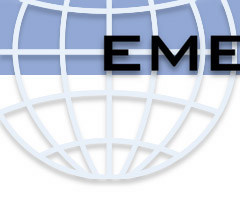

R E F L E C T I O N S F R O M O U R G R A N T E E S ![]()
![]()
L E S O T H O:![]()
 "As a physician working at Maluti Adventist Hospital in Lesotho Africa, my primary responsibility was seeing patients in the Outpatient Department. The system differed in many ways to the U.S. Physicians worked in the inpatient and outpatient departments. The patients had to pay for their visits, studies and medications at the time they were seen. For the most part, if the patients could not afford x-rays or procedures, they did not get them. The medical records kept by the patients in books that documented their visits to healthcare facilities. The information was quite limited in these small booklets, and the patients often would lose them, thus losing their lifetime medical record.
"As a physician working at Maluti Adventist Hospital in Lesotho Africa, my primary responsibility was seeing patients in the Outpatient Department. The system differed in many ways to the U.S. Physicians worked in the inpatient and outpatient departments. The patients had to pay for their visits, studies and medications at the time they were seen. For the most part, if the patients could not afford x-rays or procedures, they did not get them. The medical records kept by the patients in books that documented their visits to healthcare facilities. The information was quite limited in these small booklets, and the patients often would lose them, thus losing their lifetime medical record. ![]()
The system would greatly benefit from a computerized medical record system that would be able to track patient visits throughout the country, because patients often went to various clinics rather than consistently attending one. Also, if the government could provide money for healthcare, patients would not get substandard treatment just because they donít have the money to pay for basic healthcare needs. Working in this environment forced me to rely primarily on my clinical skills. I developed a keener sense of what was going on with the patients as I played closer attention to subtle signs of illness. I also was forced to really limit what I would order for patients because they had limited funds and the hospital had limited resources. This made me much more diligent in regards to what studies I pursued. As a result, I found that I often could care for the patient just as well with fewer studies. My problem-solving skills definitely benefited. ![]()
The patients were very gracious. They never complained about waiting. They never took their health care for granted, likely because they had to pay for everything on the spot. They were a resilient group of people on the whole. Overall, I gained a deep appreciation for what we take for granted in the U.S., as well as how a simpler life can often mean a better quality of life. In general, I found people to be happier with stronger communal bonds in comparison to the more modern way of life found in the Western world." -DR. MILLER PEARSALL![]()
![]()
![]()
© 2007-2010 EMEDEX International, all rights reserved.
![]()